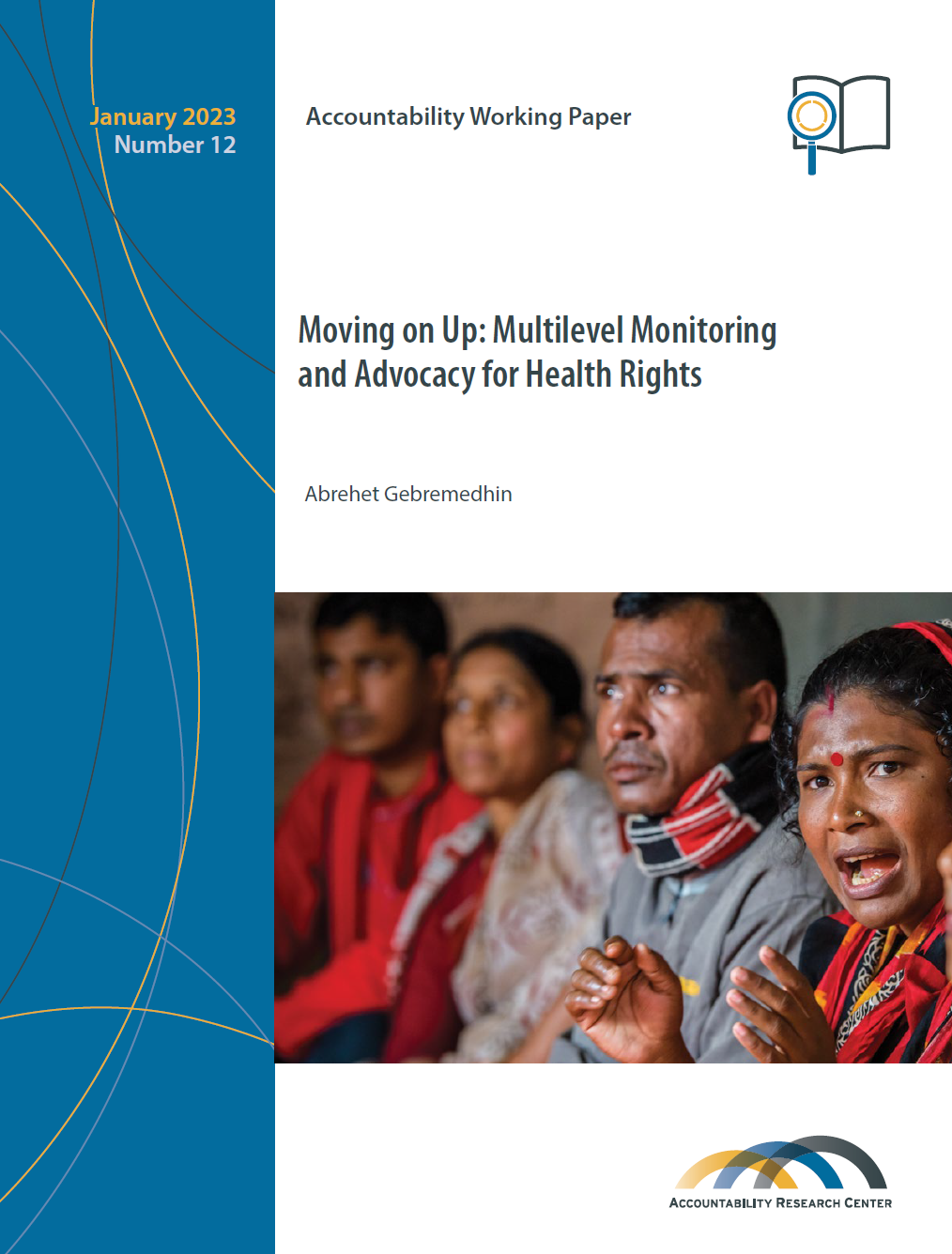
Moving on Up: Multilevel Monitoring and Advocacy for Health Rights
Date: January 2023
Author(s): Abrehet Gebremedhin
Publication type: Accountability Working Paper
Published by: Accountability Research Center
Multilevel approaches to monitoring and advocacy are often used by international development practitioners, particularly in civil society, in efforts to hold governments—from the national to the local—to account for policy implementation. However, such approaches are not yet well understood or identified by many scholars in the social accountability field.
This evidence review addresses this gap through a cross-case comparison of multilevel approaches in ten health rights programs across Africa, Asia, and Latin America. It draws on published evaluations, working papers, and peer-reviewed journal articles, as well as insights shared by implementers and researchers. Cases were selected to illustrate health rights initiatives that included monitoring or advocacy activity at a minimum of two different levels: local health facility, district, regional, provincial or national.
Four significant findings emerge from this review of evidence:
- Vertical integration is a relatively common feature of multilevel monitoring and advocacy in these ten cases and is most likely to take place at the lower ends of the health system. However, it is largely implicit, and often not articulated in project design or theories of change.
- Horizontal organizing—the coordination of civil society action across districts or geographies—is a less visible feature of multilevel approaches to health rights programming than vertical integration.
- Despite the multilevel nature of health monitoring and advocacy in these ten cases, less than half reported working at the regional or provincial level, indicating a ‘missing middle’ between local and national activity.
- Escalation—the process by which citizens’ unaddressed claims move upwards to those with greater decision- making powers—is an important mechanism for accountability and one way in which vertical integration can happen. However, escalation is not clearly articulated in much of the gray literature, and therefore merits further research.
The findings from this evidence review have implications for strategy, including: the importance of explicitly identifying multilevel tactics for monitoring and advocacy; theorizing the process by which unaddressed claims can be addressed, particularly moving up beyond the local level; emphasizing the importance of the ‘middle’ and ensuring regional and provincial decision-making is leveraged; and looking to link vertical integration with opportunities for horizontal organizing
Abrehet Gebremedhin is a researcher at the Accountability Research Center at the American University and
a PhD student at the School of International Service at American University in Washington, D.C. Her academic
research centers on monitoring and evaluation, civil society engagement in education and health, transnational
aid for education, and youth mobilization. Before ARC, Abrehet was an M&E professional, specializing in participatory,
process, and impact evaluations of education, health, and gender programs, including Education Out Loud, the
largest global fund for education advocacy. She holds an MA and a BA in International Development from the
University of Denver.
